- Search PhD Projects & Programmes
- PhDs by Subject
- PhDs by Institution
- Latest PhDs

RMIT University
The Royal Melbourne Institute of Technology is one of Australia’s original and leading educational institutions, producing some of Australia’s most employable graduates. As an innovative, global university of technology, with its heart in the city of Melbourne, RMIT has an international reputation for excellence in work-relevant education and high quality research, and engagement with the needs of industry and community. With more than 70,000 students studying at RMIT campuses in Melbourne, in Vietnam, online, and at partner institutions throughout the world, the University is one of the largest in the country. It has built a worldwide reputation for excellence in professional and vocational education and research. A vibrant alumni community now stretches across more than 100 countries. RMIT is a member of the Australian Technology Network.
By Department/School/Faculty
FindAPhD. Copyright 2005-2024 All rights reserved.
Unknown ( change )
Have you got time to answer some quick questions about PhD study?
Select your nearest city
You haven’t completed your profile yet. To get the most out of FindAPhD, finish your profile and receive these benefits:
- Monthly chance to win one of ten £10 Amazon vouchers ; winners will be notified every month.*
- The latest PhD projects delivered straight to your inbox
- Access to our £6,000 scholarship competition
- Weekly newsletter with funding opportunities, research proposal tips and much more
- Early access to our physical and virtual postgraduate study fairs
Or begin browsing FindAPhD.com
or begin browsing FindAPhD.com
*Offer only available for the duration of your active subscription, and subject to change. You MUST claim your prize within 72 hours, if not we will redraw.

Do you want hassle-free information and advice?
Create your FindAPhD account and sign up to our newsletter:
- Find out about funding opportunities and application tips
- Receive weekly advice, student stories and the latest PhD news
- Hear about our upcoming study fairs
- Save your favourite projects, track enquiries and get personalised subject updates

Create your account
Looking to list your PhD opportunities? Log in here .
- Interesting for you
- My settings
Computer Science
Within the Computer Science PhD program from RMIT University you'll use your advanced research skills to further the growth and development of computer science.
RMIT University Multiple locations Melbourne , Victoria , Australia Top 1% worldwide Studyportals University Meta Ranking 4.1 Read 136 reviews
Throughout the Computer Science PhD program from RMIT University you will join an active research community and work with academics, peers and partner organisations who have demonstrated research success in a range of specialities, including:
- data engineering and analysis
- distributed systems and networking
- artificial intelligence
- heuristic optimisation
- information retrieval and web search
- software engineering
RMIT's success is demonstrated in international university rankings, with computer science at RMIT being placed in the top 200 universities in the Shanghai Jiao Tong rankings and joint sixth in Australia for computer science and information systems in the 2015 QS World University rankings. The Australian Research Council identified our research in Artificial Intelligence and Image Processing and Information Systems as above world standard in the Excellence in Research for Australia (ERA) reports.
Career opportunities:
Join the Computer Science program from RMIT University and you will be able to pursue an academic career in a university, be employed in senior leadership, management and research positions in government, scientific and industrial research laboratories, or work in or start high tech companies.
On completion, our candidates have gone on to senior positions with industry leaders including SENSIS, Seek, CSIRO and Tinder.
Programme Structure
- Time spent on research
Full-time candidates are expected to commit at least four days per week (or at least two days per week for part-time candidates) to their research. The academic year is 48 weeks.
- Regular contact with your supervisor
A schedule of meetings with your supervisor/s must be established to assess progress against milestones and timely completion.
- Resources, facilities and support
You will have access to online resources through the myRMIT student portal. You will be part of an active research community and have access to resources and workshops to help you succeed.
Key information
- 36 months
- Part-time 6-8 years
- Part-time option is only for domestic students.
Start dates & application deadlines
- Continuous admissions
Interested in an IELTS preparation course? Get started here
Disciplines
Academic requirements.
We are not aware of any specific GRE, GMAT or GPA grading score requirements for this programme.
English requirements
Student insurance.
Make sure to cover your health, travel, and stay while studying abroad. Even global coverages can miss important items, so make sure your student insurance ticks all the following:
- Additional medical costs (i.e. dental)
- Repatriation, if something happens to you or your family
- Home contents and baggage
We partnered with Aon to provide you with the best affordable student insurance, for a carefree experience away from home.
Starting from €0.53/day, free cancellation any time.
Remember, countries and universities may have specific insurance requirements. To learn more about how student insurance work at RMIT University and/or in Australia, please visit Student Insurance Portal .
Other requirements
General requirements.
CRICOS number: 079721C
The minimum requirements for admission to a PhD program are:
- a bachelor degree requiring at least four years of full-time study in a relevant discipline awarded with honours. The degree should include a research component comprised of a thesis, other research projects or research methodology courses that constitute at least 25% of a full-time academic year (or part-time equivalent). The applicant must have achieved at least a distinction average in the final year; or
- a master degree that includes a research component comprised of at least 25% of a full-time academic year (or part-time equivalent) with an overall distinction average or a master degree without a research component with at least a high distinction average; or
- evidence of appropriate academic qualifications and/or experience that satisfies the Associate Deputy Vice-Chancellor, Research Training and Development
Tuition Fee
International.
- If you are an Australian citizen, Australian permanent resident or New Zealand citizen you may be eligible for a Research Training Scheme
Living costs for Melbourne
The living costs include the total expenses per month, covering accommodation, public transportation, utilities (electricity, internet), books and groceries.
In order for us to give you accurate scholarship information, we ask that you please confirm a few details and create an account with us.
Scholarships Information
Below you will find PhD's scholarship opportunities for Computer Science.
Available Scholarships
You are eligible to apply for these scholarships but a selection process will still be applied by the provider.
Read more about eligibility
- missing or incomplete ?"> Missing or incomplete content
- wrong or outdated ?"> Wrong or outdated content
Other interesting programmes for you
Our partners.
Go to your profile page to get personalised recommendations!

Welcome to RMIT University Application Service for:
- English, VCE and Foundation Studies
- International Vocational, Undergraduate and Postgraduate coursework studies
- Higher Degree by Research: PhD or Research Masters
- Study Abroad and Exchange
Other applicants (current VCE and Australian Year 12 students, domestic undergraduate and postgraduate coursework) should visit the RMIT How to Apply page.
Register Login
Technical support | Contact us

Want to create or adapt books like this? Learn more about how Pressbooks supports open publishing practices.
Book Title: Research and Writing Skills for Academic and Graduate Researchers
Author: RMIT University Library
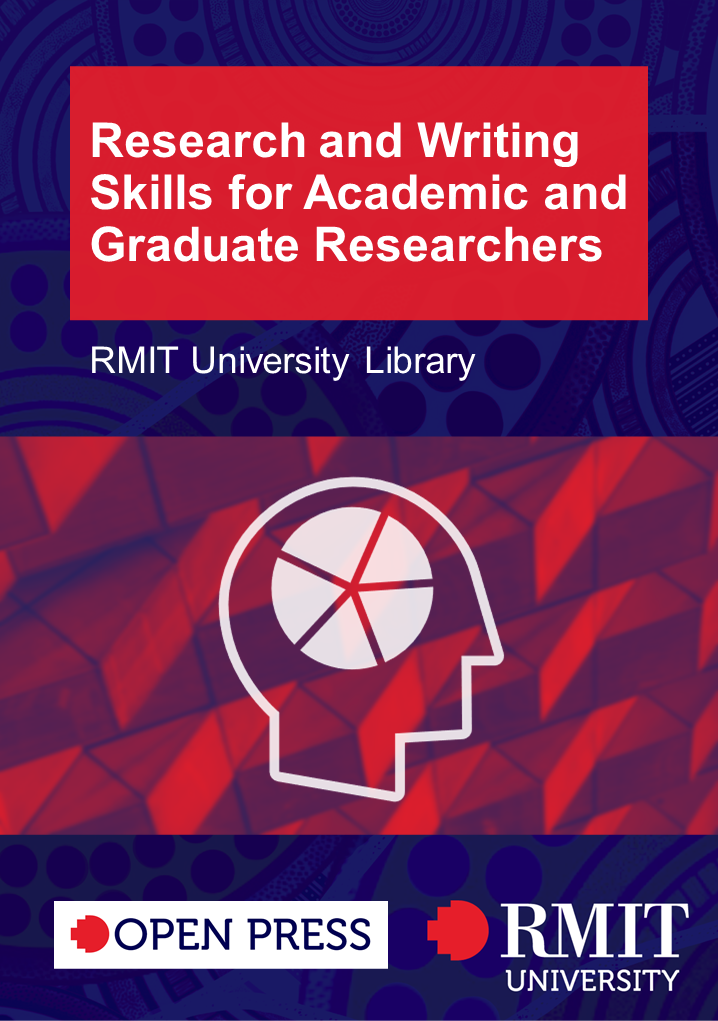
Download this book
- Digital PDF
- Pressbooks XML
- Common Cartridge (Web Links)
- Common Cartridge (LTI Links)
Book Description: These modules are for academic and higher degree researchers who want to develop and extend the skills required in the contemporary research environment. (This set of modules is under development - check back regularly to find additional content.)
Book Information
Book description.
Research and Writing Skills for Academic and Graduate Researchers is for higher degree students and academics who want to develop skills to assist them on their research journey, from the beginning stages of searching the literature and developing a research proposal, to writing and presentation skills, and on to managing their researcher profile and finding evidence of their research impact.
While written with RMIT University higher degree and academic researchers in mind, other researchers world-wide may find it applicable – feel free to adopt or adapt to suit your own context.
This set of modules is under development – check back regularly to find additional content.
Research and Writing Skills for Academic and Graduate Researchers Copyright © 2022 by RMIT University is licensed under a Creative Commons Attribution-NonCommercial 4.0 International License , except where otherwise noted.
Research methods: general
We have made all reasonable efforts to:
- clearly label material where the copyright is owned by a third party
- ensure that the copyright owner has consented to this material being presented in this textbook.
External links
This textbook may include links to third-party websites that contain copyright protected material. Your access to these sites will be covered by terms between you and the other operator/owner of the site. We are not responsible for any of the content, including links found on the site. Read and abide by the external websites’ terms of use.
- Study with us
- About the Academy
- How to apply
Program duration and fees
Program details.
- The PhD duration will be maximum 4 years
- Students will be co-supervised by academics from both BITS and RMIT throughout their candidature
- Wh ile at a BITS campus in India , students will complete the required coursework and be required to develop their research proposal for confirmation of candidature by the end of their first year
- Students will visit RMIT in Melbourne for up to one year (normally in the second year of their program)
- RMIT coursework requirements will be completed when the students are at RMIT .
Costs, fees and scholarships
Costs when at bits campuses in india.
- Tuition fees at BITS:
- Fee to be paid at the time of joining: INR 37,755 (this fee is for the academic year 2023-2024, for 2024-2025 there could be a marginal increase that will be intimated at a later date)
- The First Semester Fee includes a non-refundable Admission Fee of INR 10,000 and a refundable deposit of INR 3,000
- Semester Fee from second semester: INR 24,500 (the fees are reviewed annually)
- Other costs/fees
- There is a Ph.D. Thesis Submission Fee of INR 15,000 which needs to be paid at the time of thesis submission
- You will also be required to pay boarding charges which depend on your campus and living arrangements
- A Stipend will be made available:
- Annual Stipend for those with First Degree (B.E. / M.Sc.) Qualification: INR 5,13,600/-
- Annual Stipend for those with Higher Degree (M.E. / M.Tech.) Qualification: INR 5,49,600
Costs when at BITS campuses in Dubai
- The First Year Fee includes an Admission Fee of AED 2000 and a refundable deposit of AED, 4000
- Annual Fee from the Second Year: AED 16,700 (these amounts are reviewed annually- includes hostel fee)
- There is a Ph.D. Thesis Submission Fee of AED 1,000 which needs to be paid at the time of thesis submission.
- Annual Stipend of AED 30,000
- In addition, you will receive an annual top-up stipend of around AED 4,900
Costs when at RMIT campuses in Australia
- Your tuition fees at RMIT
- You will not have to pay tuition fees at RMIT for the duration of your time in Melbourne (up to one year)
- You will receive a stipend of around A$33,826 per year pro rata to cover your cost of living including accommodation, food and entertainment (this amount is reviewed annually and published on the RMIT website)
- Other costs and fees
- You will be required to pay an RMIT annual student services and amenities fee of around A$326 (this amount is reviewed annually)
- Your Overseas Student Health Cover (medical insurance) will be paid for by RMIT
- BITS and RMIT will purchase for you a single return economy class airfare to get you to Melbourne and back. Any additional costs related to travel to and from Melbourne (such as taxis or additional baggage charges) will need to be covered by you.
- As noted above, many of these figures are estimates based on this year’s relevant costs or stipends. You will be informed annually in advance of each of these amounts.
Note, these figures will be reviewed annually.
| | ||||||
| --> | Dr. Hai Dong is currently a senior lecturer (equiv. to associate professor in North America) at the in , Melbourne, Australia. He is the leader of the , the co-founder and co-director of the , and a member of the . Prior to this position, he served as a in and a in , Australia. He received a PhD from , a Bachelor's degree from , China, and a Graduate Certificate in Learning and Teaching (Higher Education) from . He published a monograph and 120+ ( ) research articles in international journals and conferences, including , , , , , , , , , , etc. He received the Best Research Paper Award in and the . He secured from government (i.e., ARC, CRC, and QNRF) and industry (i.e., ANZ, CloudTech, and Telstra) as a chief investigator. He currently chairs the . He serves as an editor/guest editor for journals such as and . He has participated in the organising/program committees of , including , , , , etc. He has been invited to review for , such as , , , , etc. His primary research interests include: , , , , , , etc. He is a senior member of the and a member of the .
 Nataliya IlyushinaDr Nataliya is a Research Fellow (Advanced) and investigates decentralised autonomous organisations (DAO) and automated decision making, and the impact they have on labour markets, skills and long term staff wellbeing. As employees mental wellness drops to historical lows, and whispers of The Great Resignation abound, Nataliya’s work delivers strategies for understanding the impacts of task automation, corporate structure and gender on both individuals and the AI systems that make decisions on their behalf. Dr Ilyushina is a Research Fellow at the Blockchain Innovation Hub and ARC Centre of Excellence for Automated Decision-Making and Society (ADM+S) at RMIT University. She received her PhD in Economics from RMIT University. Her other qualifications include Master of Economics from Melbourne University, double degree Master of Professional Accounting, Master of Commerce from RMIT University and Bachelor of Economics from Moscow State University
 Reducing food waste in hospitality requires a joint effort
 Food waste remains a critical issue with far-reaching environmental, economic, and social consequences. Its impact extends well beyond immediate losses, said RMIT experts. According to the United Nations Environment Program (UNEP), the volume of food waste was estimated at 1.05 billion tonnes in 2022. This amounts to 19 per cent of food available to consumers being wasted, at the retail, food service, and household level. That is in addition to the 13 per cent of the world’s food lost in the supply chain from post-harvest up to and excluding retail, as estimated by Food and Agriculture Organization of the United Nations (FAO). “This wastage not only deprives millions of people of regular access to adequate food but also contributes to environmental degradation,” said Dr Truong Thuc Tuyen, Program Manager of Food Technology and Nutrition, RMIT Vietnam. Dr Tuyen highlighted that food production linked to wastage contributes to land use changes, increased water stress, pollution, and biodiversity loss. 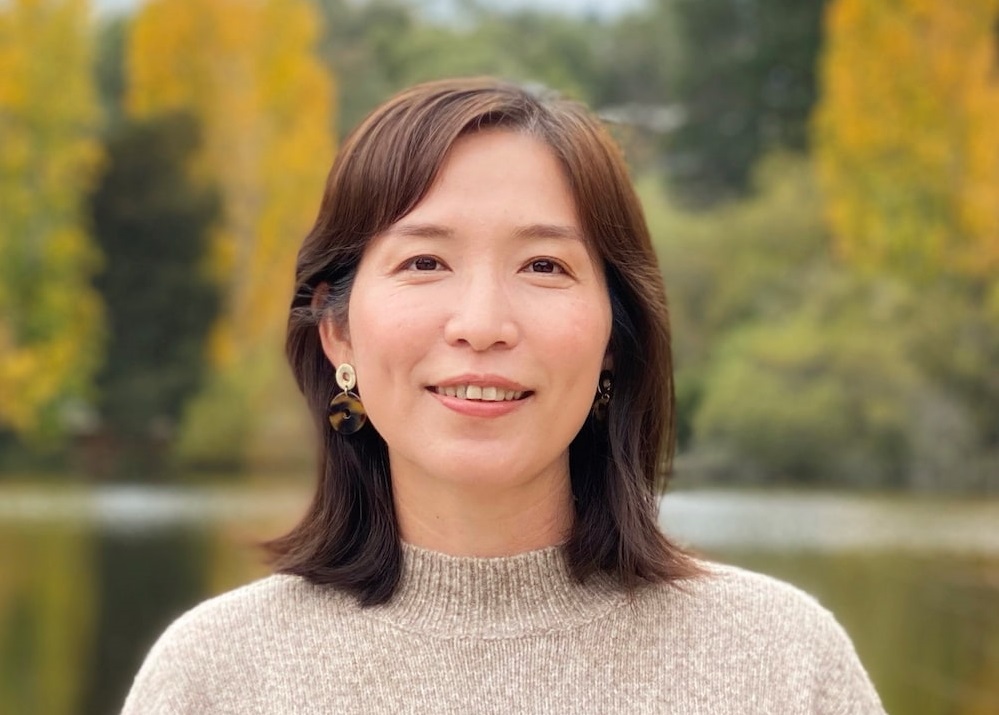 “In a world where sustainable practices have become an increasingly urgent priority, addressing food waste in the hospitality sector has also become pivotal,” Dr Tuyen said. Common sources of food waste in hospitality“In Vietnam’s hospitality industry, food waste is a complex issue arising from multiple sources”, according to Dr Daisy Kanagasapapathy, Lecturer in Tourism and Hospitality Management, RMIT Vietnam. “Overproduction is a significant factor, driven by the need to ensure ample food supply for unpredictable customer demands. “Hotels and restaurants often prepare large quantities of food to avoid shortages, which frequently results in substantial leftovers being discarded,” said Dr Kanagasapapathy. Buffets, a hallmark of luxury hospitality, contribute significantly to waste as they must be fully stocked until the end of service, leading to a large amount of uneaten food. Dr Kanagasapapathy pointed out that the reliance on fresh ingredients, such as seafood, herbs, and vegetables, while essential for authentic Vietnamese cuisine, also contributes to waste due to their short shelf life and perishability. The cultural norm of serving generous portions, reflecting Vietnamese hospitality and abundance, often results in diners leaving substantial amounts of food on their plates. 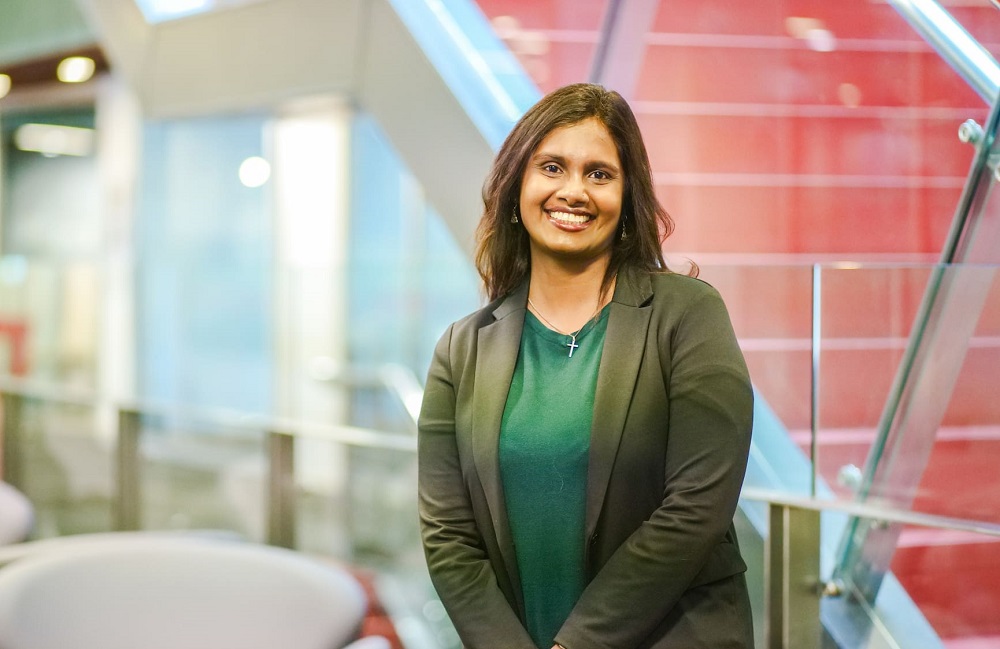 Dr Kanagasapapathy believes that miscommunication and inefficiencies between kitchen and service staff exacerbate the issue, leading to the preparation of incorrect amounts or types of food. “This can result in surplus food that cannot be repurposed and is ultimately discarded,” Dr Kanagasapapathy said. Customer preferences and dietary restrictions add another layer of complexity. “The diversity in customer tastes, including the growing trend of specialised diets such as veganism and gluten-free diets, means some dishes may not be as popular, leading to wasted ingredients and dishes that are not consumed,” she said. Technological innovations to tackle food wasteIn the battle against food waste, technological advancements are paving the way for significant reductions in the hospitality sector. Dr Tuyen highlighted some key innovations:
Food waste reduction initiativesVietnam’s hospitality sector has witnessed innovative and effective initiatives to reduce food waste, reflecting a growing commitment to sustainability. Dr Kanagasapapathy said: “Food donation programs have emerged, with high-profile hotels and restaurants partnering with local charities to donate surplus food.” VietHarvest, a sustainable innovative social enterprise founded in 2020, focuses on tackling food waste and hunger and helping nourish the underserved communities in Vietnam. Ms Ngo Phuong Anh, City Manager of VietHarvest said: “VietHarvest works with international and local hotels, caterers, restaurants, and supermarkets to collect good quality food for human consumption that potentially goes to waste and instead delivers it to charities that support individuals in need.” During 2022 to 2024, VietHarvest has been focusing on piloting the concept of food rescue in Hanoi and Ho Chi Minh City, and has delivered 68,324 meals, aiding 4,414 individuals, rescuing and diverting 34,162 kilograms of food from landfills, and saving 68,324 kilograms of carbon emissions. In June, RMIT Vietnam Alumni and VietHarvest jointly held an event “ Cook for a Cause ” to tackle food waste and donate meals to people in need in the community within the day. This was part of a broader campaign Sạch – Sành – Sanh (Clean – Clever – Continuity) , which aims to foster sustainable development in Vietnam. 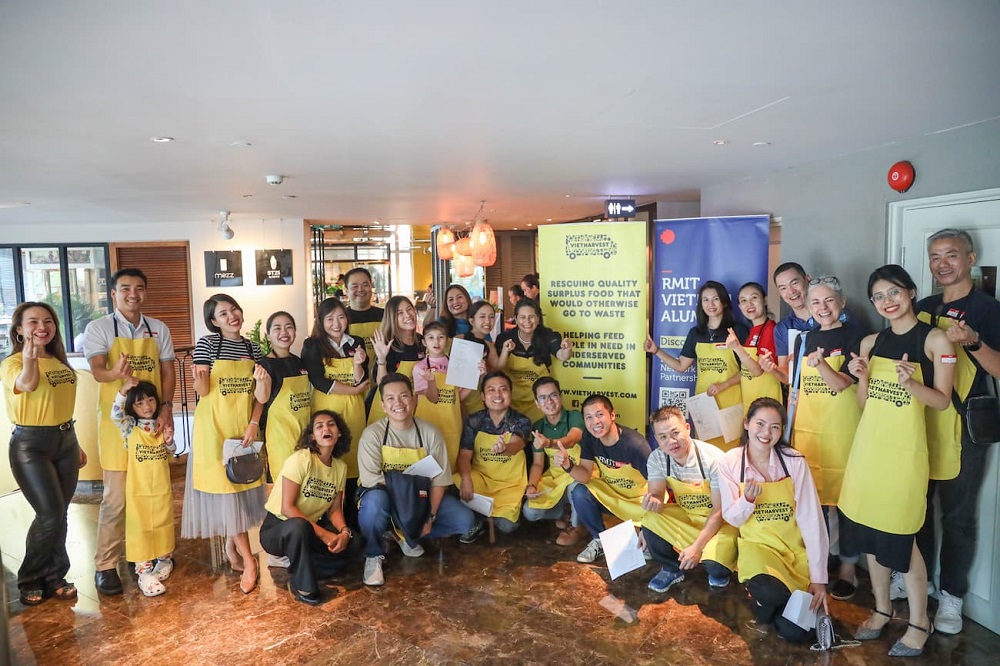 100 children at the Functional Rehabilitation and Assistance Centre for Disabled Children and the Social Work and Youth Cocational Training centre of Ho Chi Minh City received the food donation. Dr Trang Tran (Tracy), General Manager at QTS Vietnam and an RMIT alumnus, said “It is important for business leaders, regardless of the sector or industry, to align our efforts with social responsibility goals such as food waste management, environmental protection, support for vulnerable individuals, and charitable initiatives. “Beyond being businesspeople, we are human beings. These concerns and actions can lead to a better life, enhanced reputation, and a brighter future for the next generations”. Story: June Pham
Related news Smooth sailing for waterway tourismTo tap into the potential of waterway tourism in Vietnam, several proposals have been put forward by lecturers from RMIT Vietnam's Tourism and Hospitality program.  Vietnam stands to gain from Southeast Asia common visaA potential common visa agreement for Southeast Asia could significantly impact Vietnam's economy, tourism industry, and diplomatic relationships with other ASEAN countries. RMIT Senior Lecturer Dr Nuno F. Ribeiro explains why.   The ‘Michelin effect’: Boosting Vietnam's F&B sectorAfter debuting in 2023, the Michelin Guide Vietnam has made a distinctive impact on the Vietnamese food and beverage (F&B) industry and continued to generate interest in its second year.
 New training centre to advance future quantum techAlmost $5 million has been awarded in funding to a training centre led by the University of Adelaide which will provide technical and leadership skills to the next generation of quantum technology leaders in biology, engineering, and physics. 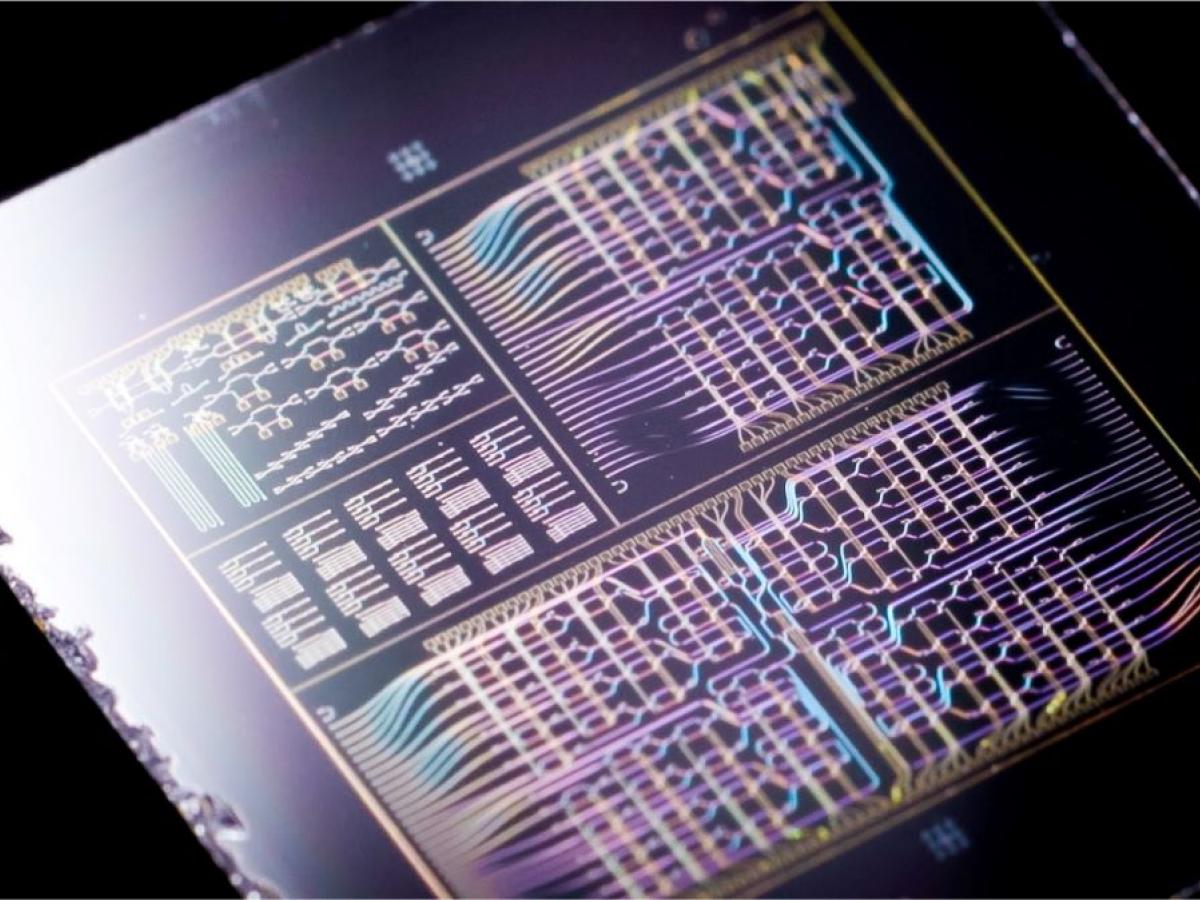 Photonic chips (like the one pictured) will be combined with quantum materials by the CE-QuTech team to achieve real-world impact with our industrial partners. With an investment of $4,869,032 from the Australian Research Council (ARC) Industrial Transformation Research Program, the University of Adelaide is leading a consortium along with RMIT University and the University of Queensland to deliver this project. Professor Glenn Solomon from the School of Physics, Chemistry and Earth Sciences will direct the new ARC Training Centre in Current and Emergent Quantum Technologies (CE-QuTech). The University’s Deputy Vice-Chancellor and Vice President (Research), Professor Anton Middelberg, says the training centre will play a critical role in advancing Australia’s position as a global leader in quantum technologies. “The University of Adelaide is world renowned for its research in quantum materials and quantum technologies. The establishment of this new CE-QuTech marks a significant milestone in advancing cutting-edge science and technology,” Professor Middelberg says. “This funding will empower Australian researchers to pioneer breakthroughs in quantum technology, and drive innovation and economic growth. Our leadership in developing skilled professionals in this field will ensure Australia remains at the forefront of global technological advancements.” Professor Solomon says that there are exciting economic opportunities and implications for what is seen as “the second quantum revolution”, yet Australia needs to be prepared. “There is a predicted shortfall in the skilled and leadership workforce necessary to keep pace with this change, let alone capitalise on the opportunity for Australia to be a world presence in this space,” he says. “In addition, industry leaders big and small are clamouring for skilled workers in current quantum technology. Many in the industry are seeking an expanding skilled workforce in current quantum technologies, from automotive electronics and lighting to telecommunications lasers. “The CE-QuTech will help meet this need by supplying graduate students and post-doctoral researchers across Australia with hands-on training in both an academic and an industrial research setting.” “The outcomes of training quantum technology leaders in areas touching engineering, physics, and biology will broadly shape the future high-technology landscape. The centre will attract and enable investment, leveraging our existing ecosystem and strengthening economic security in Australia." Professor Glenn Solomon, The School of Physics, Chemistry and Earth Sciences, The University of Adelaide In close collaboration with universities and industry members, and with strategic guidance, the new training centre addresses the advancements needed in Australia as these technologies grow world-wide at an accelerated pace. “The outcomes of training quantum technology leaders in areas touching engineering, physics, and biology will broadly shape the future high-technology landscape. The centre will attract and enable investment, leveraging our existing ecosystem and strengthening economic security in Australia,” Professor Solomon says. Professor Arnan Mitchell from RMIT University says: “I am excited to work with the whole CE-QuTech team to show how our photonic chips can be combined with quantum materials to create new solutions for industry - from wireless sensors that can work underwater to Australian made lasers that we can export to the world.” Associate Professor Jacqui Romero from the University of Queensland says: “This new collaboration between the University of Queensland, University of Adelaide and RMIT University is a great opportunity to leverage on each of our research strengths. We look forward to delivering relevant training for the future workforce of the quantum industry.” Dr Richard Johnson, ARC Acting Chief Executive Officer, says Research Hubs and Training Centres funded under the ARC’s Industrial Transformation Research Program support and foster industry-university research collaboration in areas capable of driving innovation in Australian industries and developing industry-focused researchers. “The breadth and reach of the industrially focused research effort being funded through the program is significant for Australia,” Dr Johnson says. Media Contacts: Professor Glenn Solomon , School of Physics, Chemistry and Earth Sciences, The University of Adelaide. Email: [email protected] Lara Pacillo , Media Officer, The University of Adelaide. Mobile: +61 404 307 302. Email: [email protected]
UB celebrates milestone anniversary in Singaporecampus news UB will graduate 447 undergraduates in Singapore on Thursday marking the 20th anniversary of UB’s undergraduate programs at the Singapore Institute of Management. Photos courtesy of the Office of International Education Published July 10, 2024 When 447 undergraduates receive their bachelor’s degrees from UB during ceremonies on Thursday in Singapore, it will be more than just an achievement for the students. It will mark a milestone for UB, as well. UB is celebrating the 20 th anniversary of its undergraduate programs at the Singapore Institute of Management, located on the island nation more than 9,400 miles away from Buffalo. The program, known as UB-SIM, has produced nearly 6,500 UB alumni over the course of its two decades – an impressive tenure for an American university offering degree programs abroad. “For nearly 30 years — starting with our executive MBA program in the mid-1990s — UB and SIM have fostered deep ties based on mutual respect and shared values," said President Satish K. Tripathi. “Emboldened by this strong foundation, we have achieved ever-more ambitious goals with our growing number of graduates contributing their disciplinary knowledge to the world. As we commemorate this 20-year milestone, I look forward to celebrating our students and our partnership for many years to come.” The celebration will continue through the weekend with the UB Alumni Global Reunion Conference, an inaugural event that will reunite UB alumni from around the world and feature several university guest speakers visiting from Buffalo. “We are delighted to be celebrating this milestone anniversary, which sets the UB-SIM Program apart as the longest-running U.S. program of its kind in Singapore,” says Nojin Kwak, vice provost for international education. “We are very proud of the enduring success of our partnership with SIM, and look forward to continuing that collaboration in the future.” UB-SIM is hosted by the Singapore Institute of Management, a private institution that partners with 10 universities from around the world to bring more higher-education opportunities to Singapore. UB is the only American institution partnering with SIM. Their relationship dates back to 1996 when former School of Management Dean John Thomas arranged with the Singapore Institute of Management for UB to provide an executive MBA program. The success of the EMBA partnership led to UB and SIM collaborating on the delivery of UB undergraduate programs at the SIM campus, beginning in 2004 when UB launched the bachelor of science in business administration at SIM. This was UB’s first undergraduate program delivered entirely overseas. “At the time, UB was well known in Southeast Asia and Singapore was developing international partnerships to expand its higher education capacity,” explains John Wood, senior associate vice provost for international education. “UB had a lot of experience working with partners in Asia to deliver our own degree programs.” More programs, more studentsAs UB expanded degree programs in Singapore, enrollment grew. What began with an enrollment of 50 is now around 1,300 students, who share the campus with those attending SIM’s own programs and those of its other partner institutions. “The majority of UB students there are from Singapore,” says Sherene Milizia, UB’s director of overseas and intercultural programs. “But you also have students from within the region – Indonesia, Malaysia, Thailand, Myanmar, Vietnam up to China and India, as well.” UB now offers seven degree programs in Singapore: business administration, communication, psychology, sociology, economics, international trade and geographic information science. Campus lifeThe SIM campus , where the UB programs are delivered, is about a quarter of the size of the campus in Amherst and stretches more vertically than horizontally. It’s clean and modern and tropical, with a beautiful atrium, long verandas, spacious courtyards and four buildings covering four city blocks. At UB-SIM, classes are taught by visiting professors from Buffalo, faculty hired by UB specifically for Singapore and local instructors hired by SIM and approved by UB. The students typically attend fall, spring and summer, making time to degree as little as three years. UB-SIM has its own student council and True Blue pride is evident based on the UB merchandise worn around campus, says Kevin McKelvey, resident director of UB-SIM. “Even though the enrollment of the UB program is much smaller than the two biggest programs – University of London and RMIT of Australia – the UB students are the most visible cohort on campus solely on account of their wardrobe,” McKelvey says. Bound for BuffaloBryan Thng, a recent graduate of UB-SIM, knew little about UB’s campuses in Amherst and Buffalo before taking advantage of “UB Bound.” The program allows students of UB-SIM to begin their studies in Singapore, but spend a semester or two in Buffalo, typically in their last year. It took about a month for Thng to get used to the sprawling layout of the North Campus and winter was an adjustment. But he has enjoyed watching the seasons change and is grateful for the opportunities that Buffalo has offered, including time as a teaching assistant and traveling to Costa Rica with the School of Management. “These experiences wouldn’t have been possible without coming to Buffalo,” Thng says. India eyes energy deals with Rosneft and other Russian companies
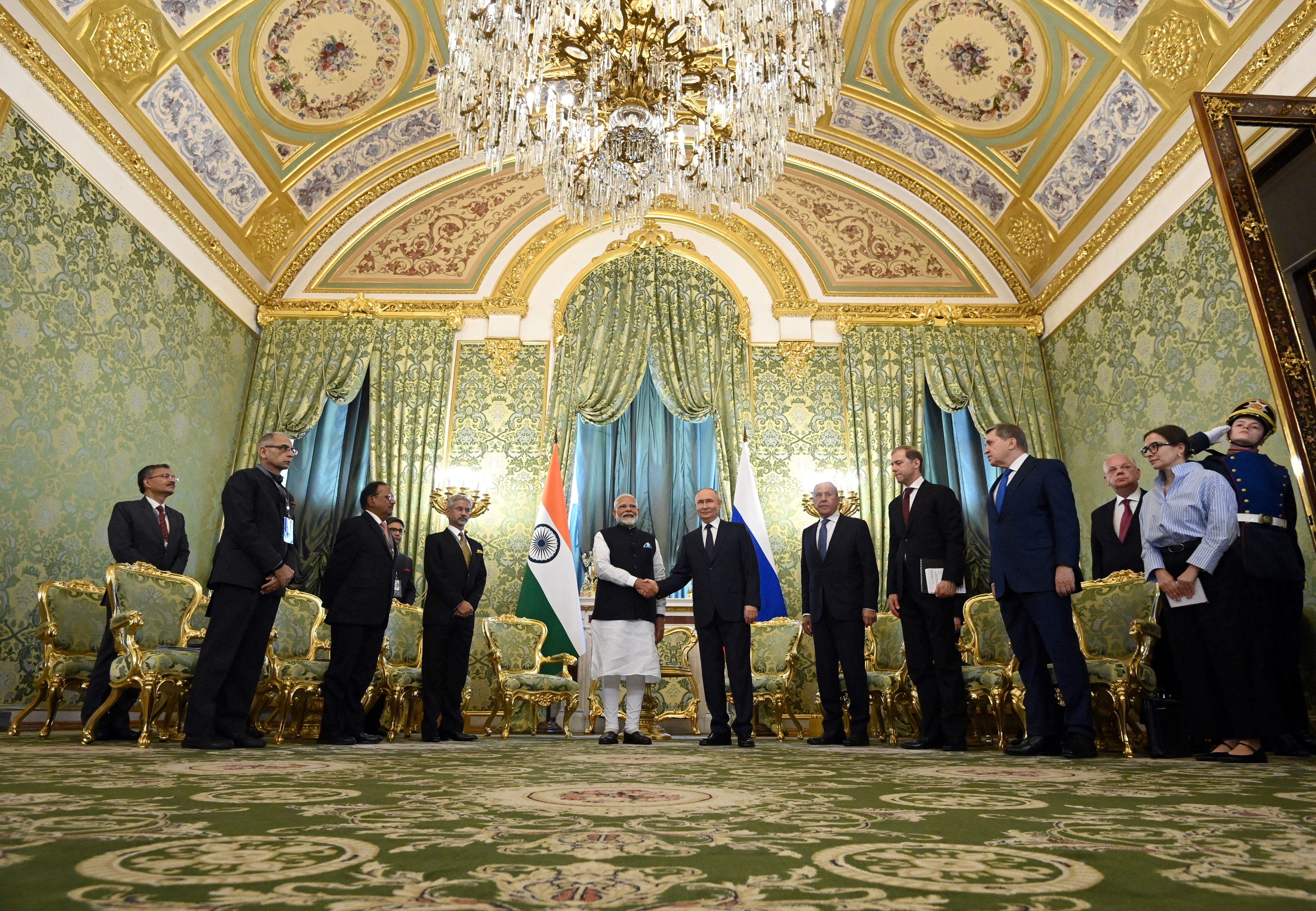
 Sign up here. Reporting by Nidhi Verma; Editing by Helen Popper and Angus MacSwan Our Standards: The Thomson Reuters Trust Principles. New Tab , opens new tab  Thomson Reuters Nidhi Verma is an award-winning journalist working with Reuters. Presently, she is working as Team Leader-Energy in India. She has more than two decades of experience in covering India and global energy sector. Her stories show a new dimension of the energy sector, the nuances of the oil trade, the role of geopolitics and the diplomatic efforts that a country makes to mitigate the impact of external shocks.  Krishn reports on politics and strategic affairs from the Indian subcontinent. He has previously worked at the Organized Crime and Corruption Reporting Project, an international investigative consortium; The Indian Express; and The Caravan magazine, writing about defence, politics, law, conglomerates, media, elections and investigative projects. A graduate of Columbia University's journalism school, Krishn has won multiple awards for his work. 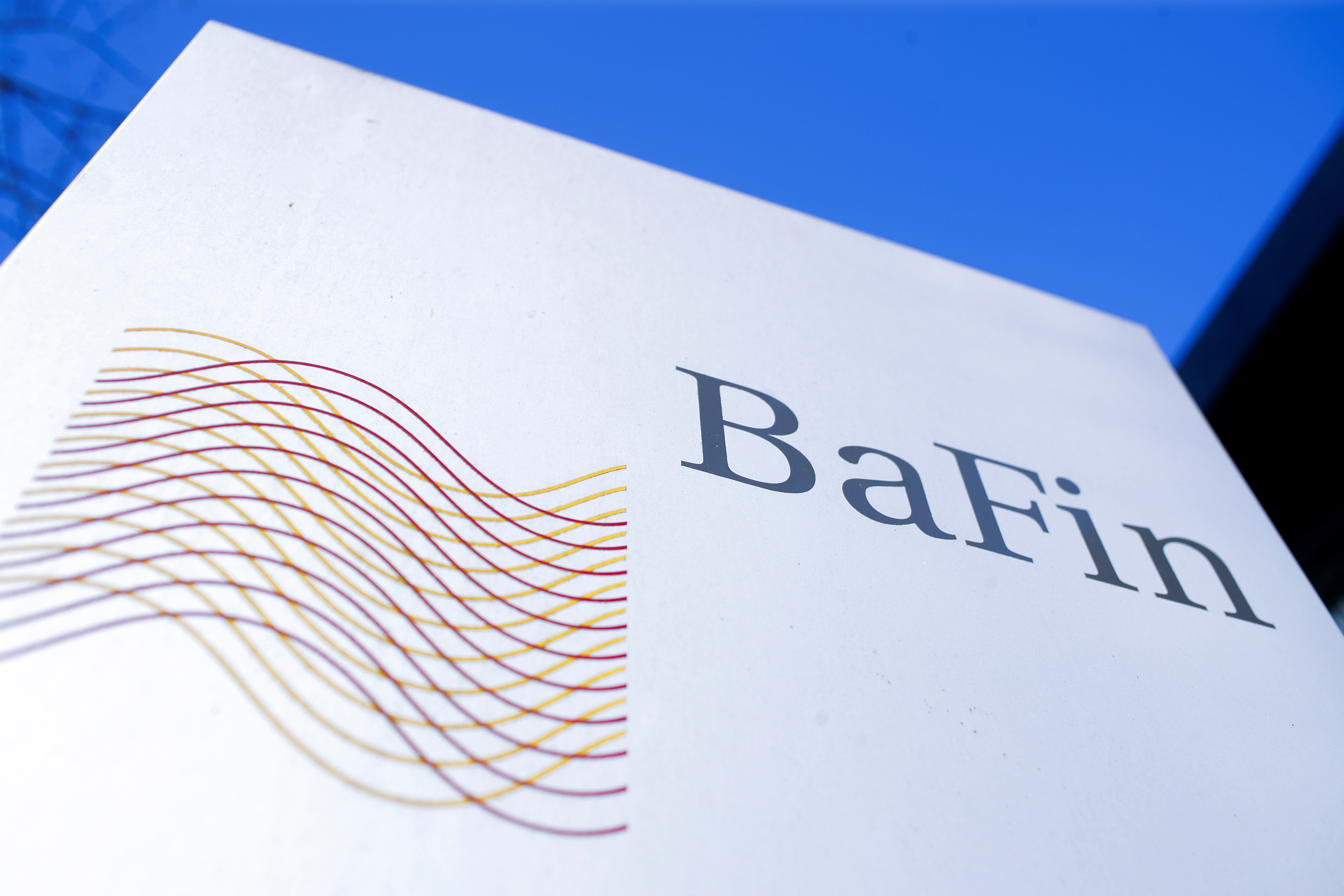 Business Chevron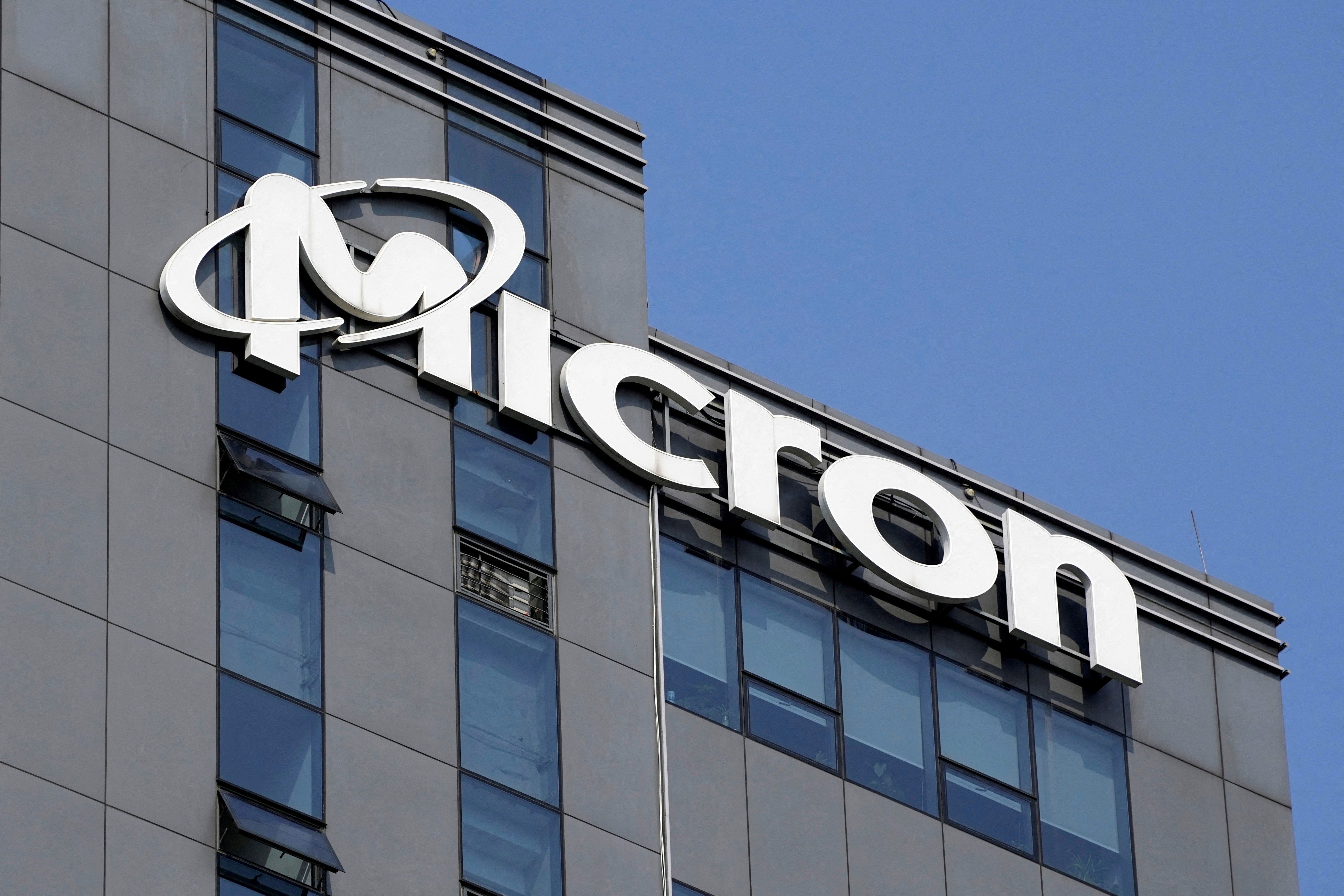 Taiwan president thanks Micron CEO for his trust in TaiwanTaiwan President Lai Ching-te thanked memory chipmaker Micron's Chief Executive Sanjay Mehrotra on Friday for his trust and continued investment in the island, in a rare public meeting with a senior foreign tech executive.  PhD (Applied Biology & Biotechnology)
Use your advanced research skills to contribute to new developments in applied biology and biotechnology. 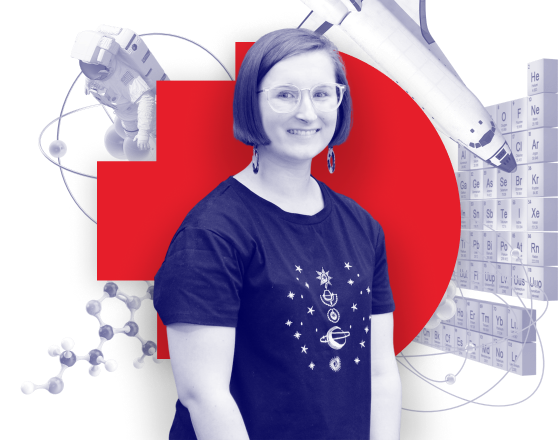 You're viewing program information for local students.RMIT considers you a local student if you are:
Asylum seekers who reside in Australia and study onshore are required to pay international onshore tuition fees for higher education courses. If you are unsure or hold a different visa type, please contact Study@RMIT for more information. Not a local student?You're viewing program information for international students.. RMIT considers you an international student if you are:
If you are unsure or hold a different visa type, please contact Study@RMIT for more information. Not an international student?Not applicable Research Training Scheme See admissions AU$36,480 (2024 annual) RMIT has a strong reputation for research and teaching in fundamental science and advanced molecular technologies. Our innovative programs and projects address real-world issues essential to Australia’s innovation agenda. Research within this discipline uses molecular approaches to diagnose and synthesise solutions for disease and environmental problems. Under expert supervision, you will develop your skills and join researchers already active in:
RMIT has purpose-built biotechnology labs and advanced microscopy, spectroscopy, tissue culture, microbiology, nanobiotechnology and analytical biochemistry, and experimental animal house facilities located at our Bundoora and City campuses. How you will learnResearch at rmit, time spent on research. Full-time candidates are expected to commit at least four days per week (or at least two days per week for part-time candidates) to their research. The academic year is 48 weeks. Regular contact with your supervisorA schedule of meetings with your supervisor/s must be established to assess progress against milestones and timely completion. Resources, facilities and supportYou will have access to the Learning Hub and other online and digital resources through the myRMIT student portal. You will be part of an active research community and have access to resources and workshops to help you succeed. School of Graduate ResearchThe School of Graduate Research works with Schools to further support candidates during their postgraduate research degree. RMIT University is committed to providing you with an education that strongly links formal learning with professional or vocational practice. We have industry partnerships with organisations and companies such as:
Learning outcomesThe knowledge and skills you will acquire throughout this degree and how they can be applied in your career are described in the learning outcomes . Electives and course planYou will complete this program under academic supervision. The PhD program is structured to enable you to:
Research integrity modulesYou are required to complete the online modules:
Research methods for sciencesResearch methods courses step you through the literature review and preparing your research proposal for confirmation of candidature. They are taught in large discipline groups. You may need to complete an ethics module to ensure your research is ethical and responsible. Research techniquesYou may elect to take (where relevant) electives in qualitative or quantitative research techniques once data collection has begun. You can use your own data to explore different research analysis techniques. Your supervisor will help you decide when you should take these electives. Co-curricular activitiesYou are encouraged to participate in activities offered with the university, college and school according to your needs and interests. This PhD may be undertaken in a project, thesis by publication or thesis mode. Prospective candidates should discuss these modes of submission with their potential supervisor/s. Course structureChoose a plan below to find out more about the subjects you will study and the course structure. *The maximum duration of the PhD program is 4 years full-time and 8 years part-time. However, candidates are expected to complete their program within 3-4 years full-time equivalent and 6-8 years part-time equivalent. *The maximum duration of the PhD program is 4 years full-time. However, candidates are expected to complete their program within 3-4 years full-time equivalent. Note: International student visa holders can only study full-time. You will be able to pursue an academic career in a university or be employed in senior leadership and management positions in government, scientific and industrial research laboratories. Minimum requirements for admissionPrerequisites, selection tasks. The minimum requirements for admission to a PhD program are:
At RMIT a grade of distinction represents academic achievement of 70% or higher and a high distinction is 80% or higher. If you are a current master by research candidate, you are able to apply for a transfer to a doctor of philosophy program through the process prescribed in the RMIT Higher Degree by Research policy . There are no prerequisite subjects required for entry into this qualification. These entrance requirements are the minimum academic standard you must meet in order to be eligible to apply for the program. You will need to complete a selection task as part of your application. A selection process will be conducted in conjunction with the School and supervisors you nominate. For further information on the steps you need to take to apply for a research program see How to apply – Research programs . English language requirementsResearch proposal and supervisor. You must attach a substantive research proposal that is 2 to 5 pages in length which articulates the intent, significance and originality of the proposed topic using the following headings: a) title / topic b) research questions to be investigated in the context of existing research/literature in the area c) significance and impact of the research d) methodology / research tasks required to undertake the research e) particular needs (e.g. resources, facilities, fieldwork or equipment that are necessary for your proposed research program, if applicable). Your application will not be considered if you have not discussed your research topic with a proposed senior and associate supervisor or joint senior supervisors. You must provide the names of the academic staff in the school you have applied to and with whom you have discussed your proposed research. To study this course you will need to complete one of the following English proficiency tests:
For detailed information on English language requirements and other proficiency tests recognised by RMIT, visit English language requirements and equivalency information . Don't meet the English language test scores? Complete an English for Academic Purposes (EAP) Advanced Plus Certificate at RMIT English Worldwide . You can gain entry to this program from a range of RMIT four year Bachelor and Honours degrees or Postgraduate or Masters by Research programs. Fee summaryFee information for masters by research and doctorate (PhD) programs. If you are an Australian citizen, Australian permanent resident or New Zealand citizen you may be eligible for a Research Training Scheme (RTS) place where your tuition costs are funded by the Commonwealth Government under the RTS and you have full exemption from tuition fees. Acceptance in an RTS place is very competitive and places are granted on the condition that you meet annual progress requirements and complete within the allotted time for your program and your status as a part-time or full-time candidate. This means a maximum of 2 years for a full-time Masters by Research or 4 years for a PhD (or the equivalent part-time). Contact the School of Graduate Research for more information. The student services and amenities fee (SSAF) is used to maintain and enhance services and amenities that improve your experience as an RMIT student. In addition to the SSAF there may be other expenses associated with your program. Income tax deductionsCandidates may be eligible to apply for income tax deductions for education expenses linked to their employment. See the Australian Taxation Office (ATO) website for more information. RMIT awards more than 2000 scholarships every year to recognise academic achievement and assist students from a variety of backgrounds. International applicants
Other costsImportant fee information. Find out more details about how fees are calculated and the expected annual increase. Applying for refundsFind information on how to apply for a refund as a continuing international student. Frequently Asked Questions (FAQs)Looking for answers or more general information. Use our Frequently Asked Questions to learn about the application process and its equity access schemes, find out how to accept or defer your offer or request a leave of absence, discover information about your fees, refunds and scholarships, and explore the various student support and advocacy services, as well as how to find out more about your preferred program, and more.
Course saved!You can compare up to courses. You can compare more courses. View comparison dashboard Compare limit reached!To save more courses you will need to unsave some courses in your dashboard.  Acknowledgement of Country RMIT University acknowledges the people of the Woi wurrung and Boon wurrung language groups of the eastern Kulin Nation on whose unceded lands we conduct the business of the University. RMIT University respectfully acknowledges their Ancestors and Elders, past and present. RMIT also acknowledges the Traditional Custodians and their Ancestors of the lands and waters across Australia where we conduct our business - Artwork 'Luwaytini' by Mark Cleaver, Palawa. RMIT University acknowledges the people of the Woi wurrung and Boon wurrung language groups of the eastern Kulin Nation on whose unceded lands we conduct the business of the University. RMIT University respectfully acknowledges their Ancestors and Elders, past and present. RMIT also acknowledges the Traditional Custodians and their Ancestors of the lands and waters across Australia where we conduct our business.
 | |||||
IMAGES
COMMENTS
RMIT research programs involve comprehensive, independent research under the supervision of an expert academic. At RMIT, you can do your research program by project or thesis mode. The duration is usually 2 years full time for Masters and 4 years full time for doctoral (PhD) studies. Search.
Johanne Trippas - PhD Researcher Johanne Trippas is a PhD researcher in Computer Science at RMIT University. With the support from her supervisors, she works toward developing a sophisticated conversational search system.
Shape the future of education with a Doctor of Philosophy (PhD) in Education by promoting the interdependence of research, learning and change. RMIT's Doctor of Philosophy (PhD) in Education cultivates high-level skills in research processes, communication, analysis and synthesis of knowledge in education. Graduates of this doctorate degree ...
Acknowledgement of Country RMIT University acknowledges the people of the Woi wurrung and Boon wurrung language groups of the eastern Kulin Nation on whose unceded lands we conduct the business of the University. RMIT University respectfully acknowledges their Ancestors and Elders, past and present.
PhD programs. RMIT Research programs involve comprehensive, independent research under the supervision of an expert academic. The duration is usually 3-4 years full-time for doctoral (PhD) studies or equivalent part-time.
In this collaborative project with two industry partners, you will develop quantum-based RF receivers and spectrum analysers.
As an innovative, global university of technology, with its heart in the city of Melbourne, RMIT has an international reputation for excellence in work-relevant education and high quality research, and engagement with the needs of industry and community. With more than 70,000 students studying at RMIT campuses in Melbourne, in Vietnam, online ...
Here you can find out more about RMIT's research activities, view details of publications, outputs and awards and make contact with our academic researchers. Search and discover research expertise at RMIT University including funding and publication data sourced directly from our researcher and publication repositories.
How to find a research project. Below is the comprehensive list of research projects available to candidates wishing to apply for a Higher Degree by Research. You will need to provide a research proposal which is aligned to your chosen research area. Use the search fields below to filter the list and find a project matching your skills and ...
RMIT University. One of Australia's original tertiary institutions, RMIT University enjoys an international reputation for excellence in professional and vocational education, applied research, and engagement with the needs of industry and the community.RMIT is a global university of technology, design and enterprise offering undergraduate ...
Within the Computer Science PhD program from RMIT University you'll use your advanced research skills to further the growth and development of computer science.
RMIT University backs Vietnam by providing unrivalled, world-class PhD opportunities. The PhD programs at The Business School, RMIT Vietnam (formerly School of Business & Management) have expanded significantly in recent years. Since 2019, 25 PhD students have registered at the school, and seven completed their PhD in 2021 and 2022.
Welcome to RMIT University Application Service for: English, VCE and Foundation Studies. International Vocational, Undergraduate and Postgraduate coursework studies. Higher Degree by Research: PhD or Research Masters. Study Abroad and Exchange. Other applicants (current VCE and Australian Year 12 students, domestic undergraduate and ...
Research and Writing Skills for Academic and Graduate Researchers. RMIT University Library. Download this book. These modules are for academic and higher degree researchers who want to develop and extend the skills required in the contemporary research environment. (This set of modules is under development - check back regularly to find ...
Program details The PhD duration will be maximum 4 years Students will be co-supervised by academics from both BITS and RMIT throughout their candidature While at a BITS campus in India, students will complete the required coursework and be required to develop their research proposal for confirmation of candidature by the end of their first year Students will visit RMIT in Melbourne for up to ...
Call For 2025 Semester 1 RMIT PhD Stipend Scholarship Application (Domestic and International Only - EoI Deadline: Aug 2024) Note: Applicants need to graduate from a QS Top-100 university with a CGPA of 4.0 (out of 4).
Welcome to the RMIT University Research Repository. The Research Repository is an open access institutional repository providing free, searchable access to scholarly publications authored by RMIT University researchers. Aboriginal and Torres Strait Islander people should be aware that Research Repository publication records and associated files may contain the images, voices or names of people ...
Jie YANG, Professor | Cited by 12,222 | of RMIT University, Melbourne (RMIT) | Read 273 publications | Contact Jie YANG
Distinguished Professor Irene Yarovsky Position: Professor College / Portfolio: STEM College School / Department: STEM|School of Engineering Phone: +61399252571 Email: [email protected] Campus: City Campus Contact me about: Research supervision ORCID: https://orcid.org/0000-0002-4033-5150 Expand all sections
Dr Ilyushina is a Research Fellow at the Blockchain Innovation Hub and ARC Centre of Excellence for Automated Decision-Making and Society (ADM+S) at RMIT University. She received her PhD in ...
Educated at University of Cambridge and with a PhD by Practice from RMIT University (2011), she has led architecture programs at a range of institutions since 1999, including London Metropolitan University, RMIT University and Central Saint Martins, University of the Arts London.
"In Vietnam's hospitality industry, food waste is a complex issue arising from multiple sources", according to Dr Daisy Kanagasapapathy, Lecturer in Tourism and Hospitality Management, RMIT Vietnam.
Minimum requirements for admission. Prerequisites. Selection tasks. The minimum requirements for admission to a PhD program are: a bachelor degree requiring at least four years of full-time study in a relevant discipline awarded with honours. The degree should include a research component comprised of a thesis, other research projects or ...
Posted 1:26:02 PM. Overview:EXPRESSION OF INTEREST FOR CASUAL TEACHING in LAW - Graduate School of Business and Law…See this and similar jobs on LinkedIn.
Extension of time application for the full-time PhD postgraduate fellowships The application deadline is March 15, 2020.
Associate Professor Jacqui Romero from the University of Queensland says: "This new collaboration between the University of Queensland, University of Adelaide and RMIT University is a great opportunity to leverage on each of our research strengths. We look forward to delivering relevant training for the future workforce of the quantum ...
UB will graduate 447 undergraduates in Singapore on Thursday marking the 20th anniversary of UB's undergraduate programs at the Singapore Institute of Management. Photos courtesy of the Office of International Education. ... University of London and RMIT of Australia - the UB students are the most visible cohort on campus solely on account ...
The Doctor of Philosophy (PhD) in the humanities and social sciences cultivates high-level skills in research processes, advanced communication skills, analysis and synthesis of knowledge.
India wants to strengthen its energy ties with Russia and could seek deals with Rosneft and other leading Russian oil firms as part of a broader push to boost bilateral trade, Foreign Secretary ...
Use your advanced research skills to contribute to new developments in applied biology and biotechnology.